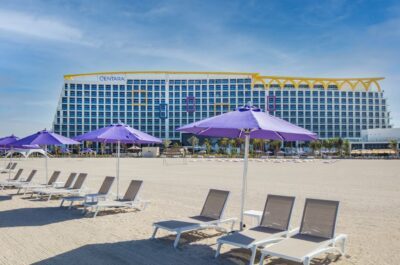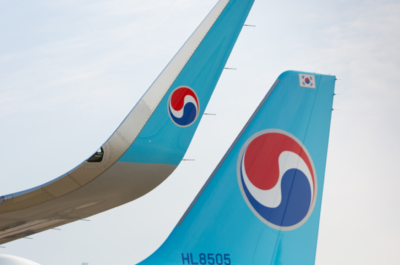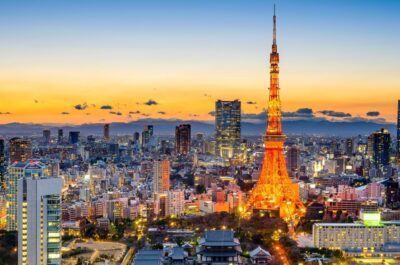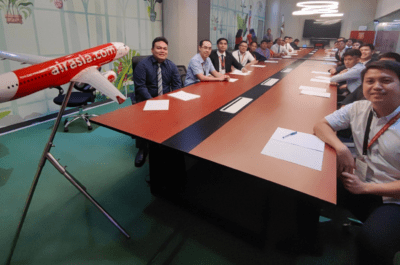…
Hospitality is a much better word than service to describe what we should be providing; words like cordial, generous reception, kindness, consideration and warmth say it equally well. What is being offered to your customers or guests?
This article contains some very explicit descriptions and information. If you are looking for something that is politically correct, move on to the next article. Any similarities to your business are truly coincidental and just plain scary.
Traveling recently by car in the southwestern United States I stopped at one of the major fast-food franchises. As I was standing at the cash register the clerk, a supervisor, was joking with a co-worker which lasted for about 15 seconds (seemed hours!) The supervisor then approached the cash register, looked up at me, and just stared. There was no Welcome to… or May I help you? Absolutely nothing, just a blank stare. So I started verbalizing my order and the supervisor was now a heads down, computer focused, order taker. The week prior to that I was at a Nevada hotel waiting to be seated for breakfast and the hostess was so busy talking about a co-worker (Alice) that it was obvious my accommodation was going to have to wait until she had completed with her story. I now know more about Alice than I ever cared to. Poor Alice needs a new boyfriend, a new doctor, and dependable transportation. Every time I ran into staff at this hotel it was evident that I was merely an inconvenience. Finally, the cream of the crop, after checking the internet for hotel rates I called a hotel directly to see if they offered a better direct rate. Not only did they not have a better rate, but they would not honor their internet rate directly! Can you say, more expense or lost revenue? Needless to say, these three businesses lost a customer.
These are only three instances of non-existent customer serviceexperienced in the last few weeks; sadly, there are more that I could bore you with. So I dare to ask, `what is the definition of customer service and for that matter, hospitality?`
Service is defined as (we will assume the customer is involved here):
- Work done for others as an occupation or business, or
- An act or a variety of work done for others, especially for pay, or
- Assistance: help, or
- An act of assistance or benefit, or
- Offering services to the public in response to need or demand.
- With a definition like that I guess that I am receiving customer service when greeted with a blank stare or a grunt, because that appears to be assistance or the offering of service.
Hospitality is defined* as:
Hospitality is a much better word than service to describe what we should be providing; words like cordial, generous reception, kindness, consideration and warmth say it equally well.
What is being offered to your customers or guests? How many customers have left your establishment with a disappointing experience and will never return? Having been in the hospitality business for most of my professional career it is absolutely amazing to me that I can truly say that I only experience “good” customer service less than 50 percent of the time and Knock My Socks Off, outstanding customer service only a handful of times.
How many times have you seen job postings that say, Must have Superior Customer Service Skills or Now Hiring Smiling Faces and then the employer just assumes the applicant has the appropriate skills because they made it to the hiring process? This is not just a hotel or hospitality problem, it is the entire service industry. Employees are not being hired and trained properly, multi-million dollar investments are being left in the hands of inexperienced, computer trained, order takers. After the first eight, sixteen, or maybe even forty hours of training, employees are considered trained and 95 percent of that is only process training. Who is training them how to offer true hospitality or expanding their knowledge in customer service skills?
Our terminology should change, if not for the entire service industry at least in hospitality. Drop the use of Customer Service and replace it with Customer Hospitality. It seems that people don`t really understand what customer service means anyway. Customer hospitality sounds much more inviting and better represents exactly what should be offered and what the customer should expect: HOSPITALITY. It will take a concentrated effort to motivate our staffs in this direction but unless you just want to be one of the average players in the middle of the pack, you need to do something different, like offering customer hospitality training to employees.
There is never an excuse solid enough to forfeit ongoing training, whether it be increasing an employee`s ability or reminding them that as a business we are here to provide all customers with an experience to remember, an experience that will bring them and their friends back. The typical justification is Revenues are down. So what is the first thing to get cut…? Training. This logic brings higher turnover, costs, and less profit to the bottom line, which has been well documented over time. The market might be soft but if you don`t continue training your staff properly, you will be lucky to get your share of the market. And if you do get your share, that only tells me that the competition is probably doing the same thing and that you are probably missing a huge opportunity. If you want a bigger piece of the pie and to continue to grow, you won`t cut the ongoing training expense.
As you read this don`t point your finger at anyone but yourself, we as consumers and business owners have allowed moderate to poor service to become the expectation. As a consumer how often do we reward, acknowledge, and commend great customer service? After a great meal with service to match, are we asking to see a manager and shaking their hand in congratulations for their training efforts in providing superior customer service? Having done this myself, it is quite amusing to watch the staff when you ask to see the manager and then shake their hand.
The customer service dilemma is not just an issue for small businesses; it should also be a topic of conversation for large corporate boardrooms. The large convention hotels with high ADR`s or the upscale restaurant franchises think that because they dress in suits and ties, that they are providing customer service, when actually it has nothing to do with the service level offered. Customer service is nothing more than an attitude; a good attitude is more likely to bring good service. Has there ever been anyone on your staff with a bad attitude? Then you are guaranteed to have had customers with a bad experience. An attitude is infectious and will transfer from person to person, from server to customer, at an extremely high volume, good or bad.
- If you have to get on the elevator before allowing others to get off… you probably don`t offer good customer service.
- If you continually drive in the left lane on an interstate… you probably don`t offer good customer service.
- If you bring your personal life to work… you probably don`t offer good customer service.
- If you cut in front of a long line of people just to ask a question… you probably don`t offer good customer service.
- If you disturb the flow of traffic just to accommodate yourself… you probably don`t offer good customer service.
- If you expect to be the exception to the rule… you probably don`t offer good customer service.
- If you don`t understand Keep Right Except to Pass… you probably don`t offer good customer service.
- If you don`t look at the customer and think, here comes a friend delivering a paycheck… you probably don’t offer good customer service.
Can you see where this is going? It`s an attitude; are you here for yourself or are you here for someone else (the customer)? What does it take to be kind, considerate, warm, giving? When the customer walks up to the counter who is more important, your fellow worker or the customer?
All of these things can be trained and it is very infectious; it will travel from staff to staff with lightning speed. If some staff don`t get it, maybe it is time for them to move to a job where they will be happier. You will be doing them (and your bottom line) a favor by helping them find a position or career where they can have a good attitude. If nothing else you have opened the door to someone who is willing to provide your customers with a great experience.
Now let`s talk about all of these TIP jars that are now cluttering the counters at many businesses.First, most of the time they are taking up valuable merchandising space, not to mention that most of the containers are quite unsightly. Second, are these employees considered tipped employees? Most time they are not, but since they are so over-worked and under-paid they must augment their income to make up for all of the fatigue and emotional stress they have to endure! Give me a break. If the employee is truly offering great service or is going above and beyond the call of duty, the employee will be rewarded by the customer if they choose to. People should not have to tip non-tipped employees for simply doing their job.
Take this article and act upon it; work with your managers, directors of training and operations, and directly with the staff. Your staff is the most valuable asset at your property; they can either sell it or take orders for it, the choice is yours. Customer Hospitality is what will make you stand out from the crowd.
TravelDailyNews Asia-Pacific editorial team has an experience of over 35 years in B2B travel journalism as well as in tourism & hospitality marketing and communications.

























































































